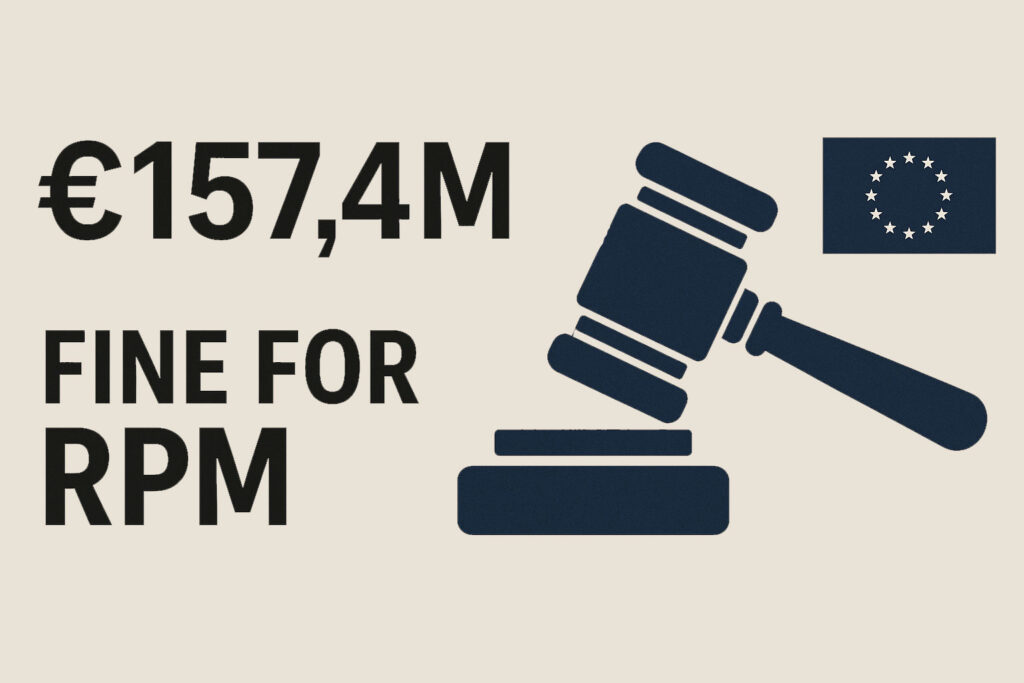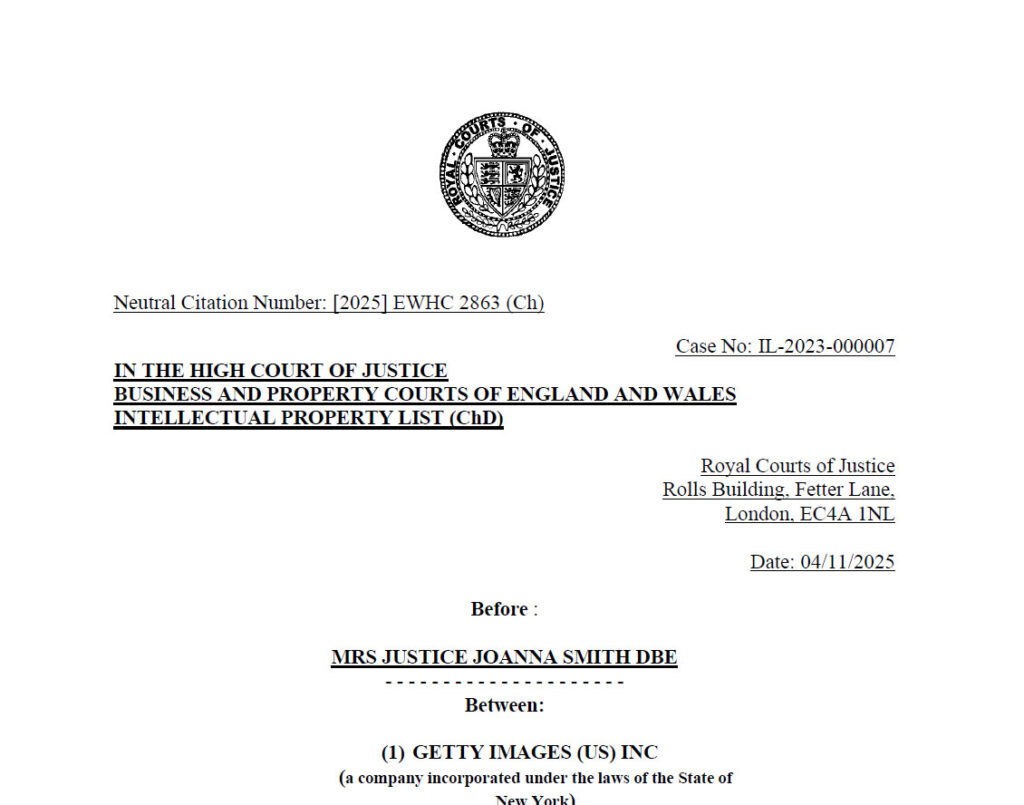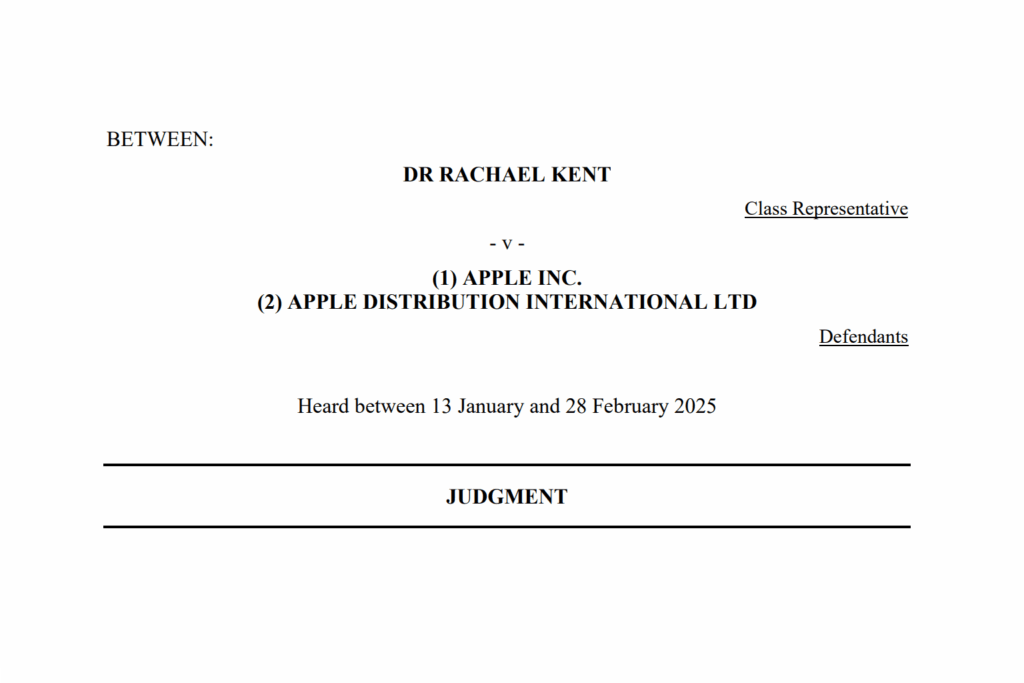On 14 October 2025 the European Commission found that Gucci, Chloé and Loewe unlawfully restricted independent retailers’ freedom to set retail prices (resale-price maintenance, “RPM”) across online and offline channels and fined them a combined €157.4 million (after cooperation reductions). The Commission treated the practices as a continuous infringement of Article 101 TFEU and used its cooperation procedure to secure acknowledgements and evidence, resulting in significant fine reductions for the cooperating parties. The decisions reiterate that RPM, including controls on discounts and sale timing, and active monitoring / follow-up with retailers, remains a high-risk practice under EU law. They also sharpen the practical lines between lawful selective distribution (which may protect brand image) and unlawful price control.
The Legal Framework
Article 101 TFEU
Article 101(1) TFEU prohibits “agreements, decisions and concerted practices” between undertakings that may affect trade between Member States and have as their object or effect the prevention, restriction or distortion of competition within the internal market. If an agreement falls within Article 101(1), it is void, subject to possible exemption under Article 101(3) if conditions are met.
Key elements for RPM cases are therefore:
- an “agreement” or concerted practice between independent undertakings (including vertical agreements between manufacturer and independent resellers);
- an effect on trade between Member States; and
- an anticompetitive object (e.g. price-fixing) or effect (anti-competitive outcome). Whether an arrangement is considered an object infringement is crucial because object infringements attract a presumption of illegality and generally harsher enforcement.
Regulation 1/2003 Enforcement Framework
The procedural and enforcement framework for applying Articles 101 and 102 TFEU is set out in Regulation No 1/2003 and its implementing practice. The Regulation has decentralised enforcement (NCAs + national courts) and sets the Commission’s powers, including investigations, inspections and fining.
Resale Price Maintenance in EU Competition Law
Resale-price maintenance, where a supplier fixes or restricts the prices charged by independent resellers, is historically one of the archetypal anticompetitive restraints. Price fixing is treated as a serious infringement of Article 101. Where manufacturers directly or indirectly fix resale prices (minimum or fixed resale prices, restrictions on discounts, or mechanisms that eliminate price competition), the practice is typically considered to have an anticompetitive object (i.e. price-fixing) and therefore unlawful. The Commission’s antitrust tools (inspections, statements of objections, decisions) and its fining practice reflect that gravity.
Facts the Commission Established
Each of the three brands restricted independent retailers’ freedom to set retail prices for all or some of their product ranges across the EEA. Restrictions included insistence on adherence to recommended retail prices, caps on discount rates, specified times for sales and in some instances temporary bans on discounts. The Commission found that the brands monitored retailers’ pricing and intervened when retailers deviated.

Illustration by EU Commission.
The restrictions applied to both brick-and-mortar and online sales. Gucci additionally asked retailers to stop selling a specific product line online in at least one instance and the retailer(s) in question complied.
Duration
The Commission found continuous infringements that ended after the Commission’s unannounced inspections (dawn raids) in April 2023. The relevant time frames reported were:
Gucci: April 2015 – April 2023
Loewe: Dec 2015 – April 2023
Chloé: Dec 2019 – April 2023
Independence of the Cases
The three companies acted independently (no cartel between them), but the Commission treated the cases together because of overlapping retailer populations and the same segment (high-end fashion).
Enforcement Outcome and Fines
The Commission concluded a single and continuous infringement of Article 101 TFEU (and Article 53 of the EEA Agreement) in each case.
Fines (after cooperation reductions):
Gucci: €119,674,000 (50% reduction for cooperation)
Chloé: €19,690,000 (15% reduction)
Loewe: €18,009,000 (50% reduction)
The Commission applied its cooperation procedure (inspired by cartel settlement practice) and reduced fines where companies provided significant added value (e.g. Gucci revealed an infringement unknown to the Commission; Loewe’s cooperation extended the temporal scope). All three companies expressly acknowledged the facts.
Related Cases in the Industry
In the 2017 judgment of Case C‑230/16 Coty the court addressed the line between lawful selective distribution and unlawful restrictions on internet sales. The Court held that a supplier may prohibit its distributors from using third-party online platforms (e.g. marketplaces, third-party sellers) where that prohibition is necessary to preserve the luxury image of the goods, provided the selection criteria are objective, non-discriminatory and proportionate, and the restriction does not amount to a general ban on internet sales.
Coty is important because it recognised that certain qualitative restrictions (aimed at preserving brand image) can be compatible with EU competition law if properly justified, but the ruling did not legalise RPM or price-fixing! The decision is often cited by luxury brands that seek to justify certain restrictions on online distribution, but it must be read narrowly. It allows qualitative selection criteria and proportionate restraints to preserve brand image. However, it does not allow suppliers to fix resale prices or to impose measures that eliminate price competition.
Practical Compliance Checklist for Brands
Below are practical, actionable steps to reduce risk of RPM findings.
- Audit resale terms and communications. Identify any contractual clauses or informal instructions that could be read as limiting retailers’ ability to set final prices (including “recommended” prices that are framed or enforced as mandatory). Remove or reword to make clear recommendations are non-binding.
- Re-design monitoring practices. Stop monitoring that includes enforcement threats or follow-up steps tied to price deviations. If market monitoring is necessary, i.e. to prevent counterfeiting, keep records showing monitoring is limited to quality/image-related compliance rather than price control.
- If using a selective distribution system, document objective criteria. Ensure selection criteria are objective, proportionate, non-discriminatory and focused on qualitative factors such as store presentation, trained staff, after-sales service. Keep strong record of why each criterion is necessary to preserve brand image (draw on the Coty decision).
- Train commercial teams. Ensure brand managers, key account teams and trade relations staff understand the line between permissible distribution management and unlawful price restraints. Verbal directions to retailers can be evidence.
- Review promotional rules. Avoid blanket prohibitions on discounting or prescriptive timing rules that effectively standardise sales periods across independent retailers. If promotional coordination is necessary, design it to allow retailer discretion.
- Prepare for dawn raids and preserve privilege. Have a robust dawn-raid and internal investigation protocol, including swift legal counsel access, secured documents, and careful preservation of communications.
- Consider early engagement if a compliance breach is uncovered. If a likely infringement is discovered internally, evaluate the potential benefits of the Commission’s cooperation procedure (acknowledgement, added-value evidence) in consultation with external counsel. The cooperation route can lead to material fine reductions but requires strategic trade-offs.
Conclusion
The Commission’s decisions against Gucci, Chloé and Loewe are a reaffirmation, not a reinvention, of EU competition law on resale price maintenance. They combine the enduring principle that price control is a core anticompetitive object with a modern enforcement environment that treats online sales parity, discount caps and sale-timing constraints as equally problematic when they remove retailers’ pricing autonomy.
For luxury brands, the Coty case continues to provide a narrow avenue for protecting brand image through qualitative distribution criteria, but Coty is no shield for price control. Businesses in the luxury segment (and beyond) must therefore re-examine pricing policies, monitoring practices and contractual clauses to ensure and document that any restraints are genuinely qualitative, objective, proportionate and never a vehicle for fixing resale prices. Where past practices fall short, early remediation and, if appropriate, strategic use of the Commission’s cooperation procedure may materially mitigate sanction exposure.




